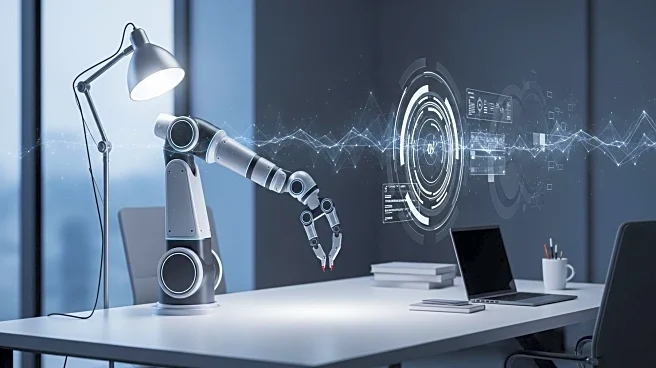What's Happening?
TechCrunch Disrupt 2025, scheduled for October 27-29 at San Francisco's Moscone West, will focus on the integration of AI in startup operations. The event will feature a panel on the Builders Stage discussing the replacement or augmentation of early employees with AI agents. Key areas such as outbound sales, billing, and customer support are being automated from the outset. The panel includes Caleb Peffer, CEO of Firecrawl, Jaspar Carmichael-Jack, CEO of Artisan, and Sarah Franklin, CEO of Lattice. These industry leaders will debate the balance between human and machine roles in business operations and the extent to which AI can be integrated.
Why It's Important?
The discussion at TechCrunch Disrupt 2025 is significant as it addresses the evolving landscape of startup operations with AI technology. The integration of AI agents in business processes could lead to increased efficiency and reduced operational costs. However, it also raises questions about the impact on employment and the dynamics of human-machine collaboration. Companies that successfully navigate this transition may gain a competitive edge, while those that fail to adapt could face challenges. The insights from industry leaders could guide businesses in making informed decisions about AI adoption.
What's Next?
As AI continues to permeate business operations, startups and established companies alike will need to assess the implications of AI integration. The insights from TechCrunch Disrupt 2025 may influence future strategies and investments in AI technology. Companies might explore further automation opportunities while considering the ethical and practical implications of reducing human roles. The event could also spark discussions on regulatory frameworks and industry standards for AI use in business.
Beyond the Headlines
The integration of AI in business operations could lead to broader societal changes, including shifts in workforce dynamics and the need for new skill sets. Ethical considerations regarding AI decision-making and accountability may become more prominent. Long-term, the trend could influence educational curricula to prepare future workers for an AI-driven economy.










